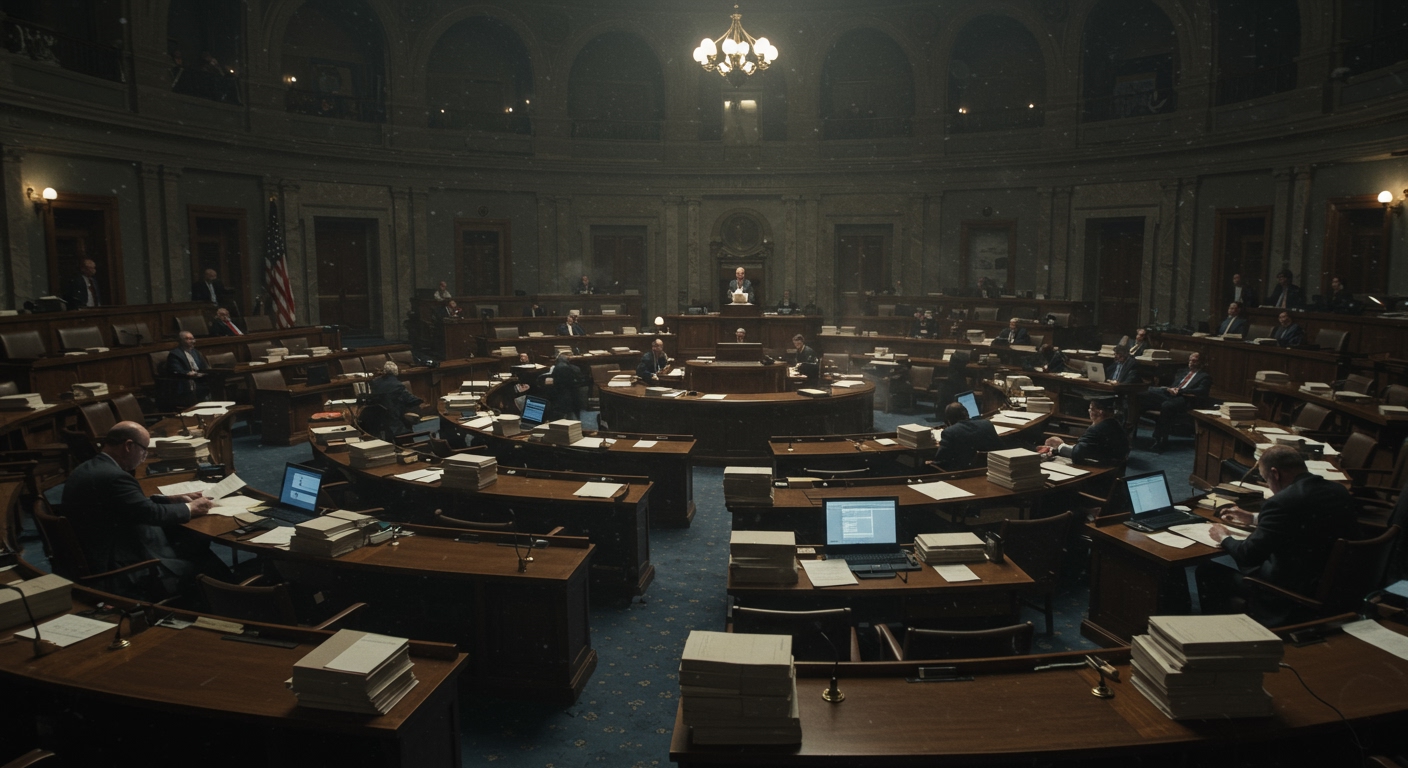Washington, D.C. – The United States Senate is poised for a pivotal legislative week, anticipating a final vote on what is widely being referred to as “Trump’s megabill.” This critical juncture follows months of deliberation and political maneuvering, bringing the sweeping proposed measure to the brink of potential final passage by the Senate GOP.
Before senators cast their definitive ballots, a demanding overnight session has been scheduled. This procedural step, often colloquially termed a “vote-a-rama,” is a high-stakes legislative crucible allowing for unlimited amendments. Its nature necessitates extended hours, testing the endurance and strategic acumen of lawmakers and their staffs as they navigate a rapid-fire series of votes.
The Demanding Overnight Session
The inclusion of a provision for unlimited amendments during this overnight session underscores the contentious and far-reaching nature of the legislation. In a typical “vote-a-rama,” senators from both sides of the aisle can introduce amendments on virtually any topic, often unrelated to the main bill’s substance. These amendments can serve various purposes: genuine attempts to alter policy, opportunities for political messaging, forcing opponents into difficult votes, or simply exhausting the minority party.
The procedural design of such a session ensures that senators must remain present and engaged throughout the night and into the early morning hours, participating in dozens, sometimes hundreds, of roll call votes. This demanding format adds an element of physical and mental challenge to the legislative process, often leading to unpredictable outcomes as fatigue sets in.
Potential for Final Passage by Senate GOP
The summary highlights the potential for final passage by the Senate GOP. This indicates that the bill’s support base resides primarily within the Republican caucus, suggesting that its eventual passage, should it occur, would likely depend on Republican unity and majority control in the chamber. Securing the votes necessary for passage, especially under the pressure of an unlimited amendment session, requires significant coordination and discipline within the party leadership.
Given the bill is referred to as “Trump’s megabill,” it implies a measure of considerable scope and potential impact, often encompassing multiple policy areas or significant financial outlays or adjustments. The nomenclature itself suggests a piece of legislation championed during the previous administration or aligned with its policy priorities, now reaching a critical legislative threshold in the Senate.
Leadership’s Role in the Process
The legislative process leading up to this anticipated final vote involves key figures guiding the bill through the Senate. Senate Majority Leader John Thune (R-S.D.) is involved in this intricate process. While the summary doesn’t detail his specific actions, the role of the Majority Leader typically involves managing the Senate floor, scheduling votes, negotiating with the minority party, and marshaling support within their own caucus to advance the legislative agenda. His involvement underscores the significance of this bill on the Senate’s calendar.
The Majority Leader plays a crucial role in determining when and how the bill comes to the floor for debate and votes, including the scheduling of the demanding overnight amendment session. Their position requires navigating complex parliamentary procedures and political dynamics to steer legislation towards final consideration.
Anticipating the Final Vote
The conclusion of the demanding overnight session with its barrage of amendments will pave the way for the anticipated final vote on the bill. This vote represents the culmination of the Senate’s work on the measure, determining whether it will pass the chamber and potentially move on to conference with the House of Representatives (if a House version exists) or be sent directly to the President’s desk (if identical to a House-passed version, though the summary does not specify these details).
The stakes are high for this final vote. Passage would represent a significant legislative victory for its proponents and likely a major policy shift. Failure to pass would mean the bill does not advance in its current form, potentially leading to further negotiation, revision, or abandonment.
As the Senate braces for the procedural intensity of the unlimited amendment session and the subsequent final vote, all attention remains focused on the legislative proceedings surrounding “Trump’s megabill,” a piece of legislation whose potential passage could have substantial implications.












